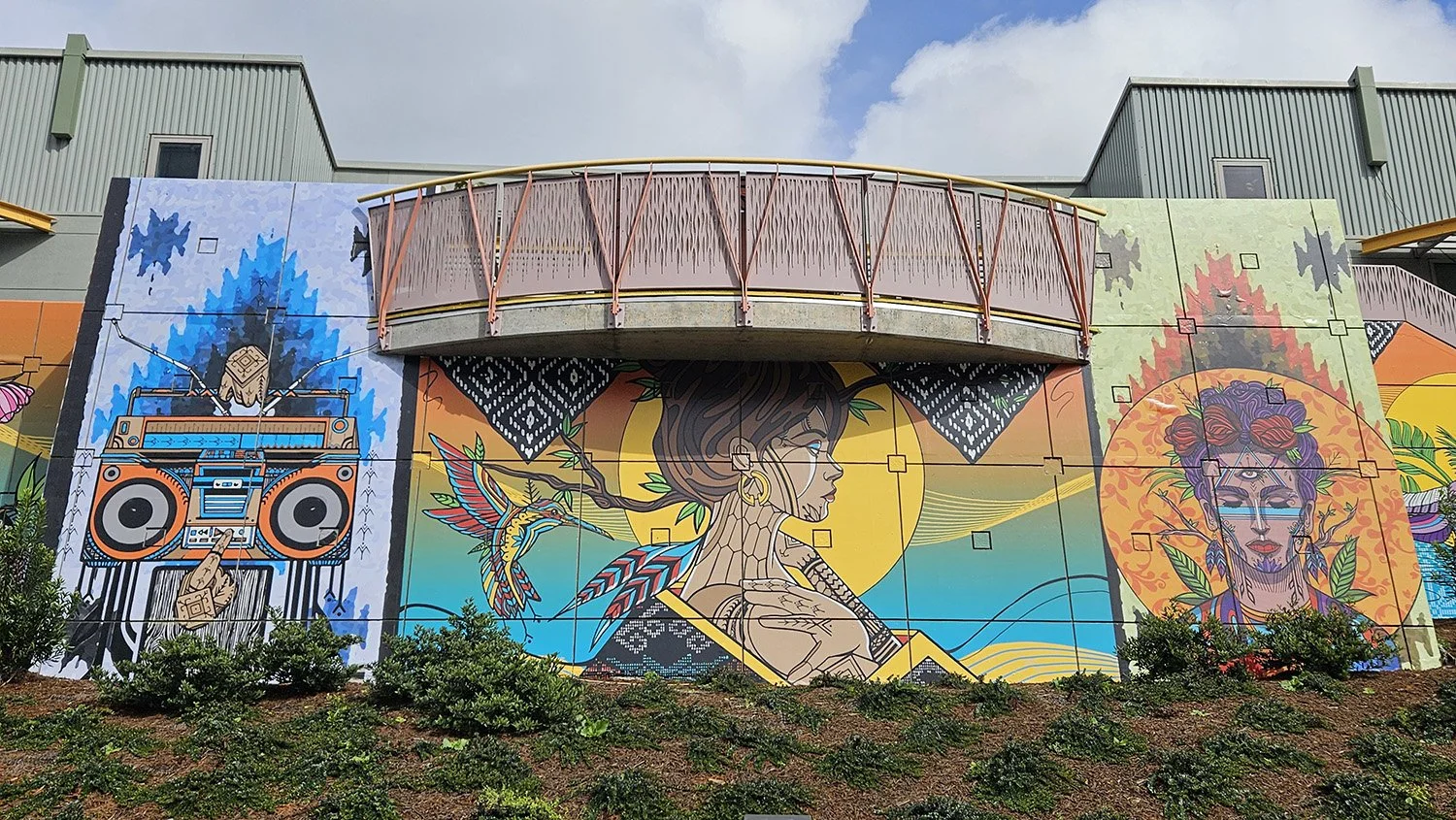ReWeave LA: Upcycling Fabric Samples Away from Landfills
/Best Furry Friends pillow
Manila-born with degrees from Yale and the Wharton School, Debbie Ouyang spent 15 years in corporate banking at Royal Bank of Canada and Banque Nationale de Paris and raised two daughters before she discovered her calling to repurpose high-end fabric samples that would otherwise be discarded by manufacturers, into elegant quilted throws, apparel and pet pillows. In 2018, Debbie and Pasadena neighbor Julie Benniardi launched ReWeave L.A. to keep fabric samples interior designers are obligated to return to manufacturers out of the ever-expanding landfills of Los Angeles.
Debbie Ouyang (middle) and Julie Benniard (right)i, along with founding member, Olivia Ouyang l)eft).
"Courting in the Countryside" Throw
While ReWeave L.A. is run from the homes of the cofounders, it doesn’t have the purely capitalistic aspirations of the cottage textile businesses from the Industrial Revolution. This for-profit enterprise employs skilled workers outside the home and supports local nonprofits.
“We’re always looking to scale the product to lower the amount of fabric that goes into landfills and to help Downtown Women’s Center and Homeboy Industries,” Debbie says of the 10 percent of sales that supports two charities that serve at-risk populations. “Each item is one of a kind and is made in Los Angeles to avoid enlarging the carbon footprint caused by products shipped from overseas factories.”
ReWeave L.A. has collected over three tons of fabric with some samples as small as two by three inches. The showroom-quality samples are sophisticated in color and texture to attract the discerning eyes of interior designers and their swanky homeowners. ReWeave L.A. incorporates the fabrics into Best Furry Friend (BFF) dog and cat pillows selling for $200 to $250 at Chateau Marmutt on Beverly Boulevard, quilted throws ranging from $650 to $800 at trunk shows in the Pacific Design Center showrooms of Donghia, Quintus, David Sutherland, Jean de Merry and Una Malan, and most recently, blouses that retail for upwards of $150 in the ReWeave catalog (available upon request at Debbie@reweavela.com).
Grouping of Throws
Ordinary pet owners might be reluctant to buy $200 pillows that will be carved up by sharp claws or stained by muddy paws. “We’re obviously not targeting the mass market because of the high quality of the fabrics and workmanship,” says Debbie.
Pricing reflects labor-intensive work that goes into cleaning and preparing the fabrics, designing the products and cutting and pinning. “We use local artisans who sew and fabricate the materials,” adds Debbie.
Other options exist for holiday shoppers who pass on luxurious pillows for their distracted cat or colorblind dog. They may have a close friend or employee deserving of an heirloom quilt, also from ReWeave L.A.
Outdoor Ball Pillows
Both the giver and the recipient will be comforted by the subtle details inspired by Debbie’s Filipino and Julie’s Indonesian roots. “My love of textiles and fabrics comes from my childhood. Being exposed to the various woven products from the Philippines instilled in me that appreciation of textures of fabrics,” Debbie says. For an example, she offers “a bomber jacket with a sleeve that shows a cultural influence.”
In the past, economic conditions forced Filipinos to reimagine items that were widely regarded as waste. Army surplus Jeeps became dazzling jeepneys. Banana leaves became food wrappers. By transforming fabric samples into beautiful gifts for the home, Debbie and ReWeave L.A. take Filipino resourcefulness into a modern age when business priorities must defer to environmental conditions.
Anthony Maddela is a writer based in Los Angeles.
More articles from Anthony Maddela







